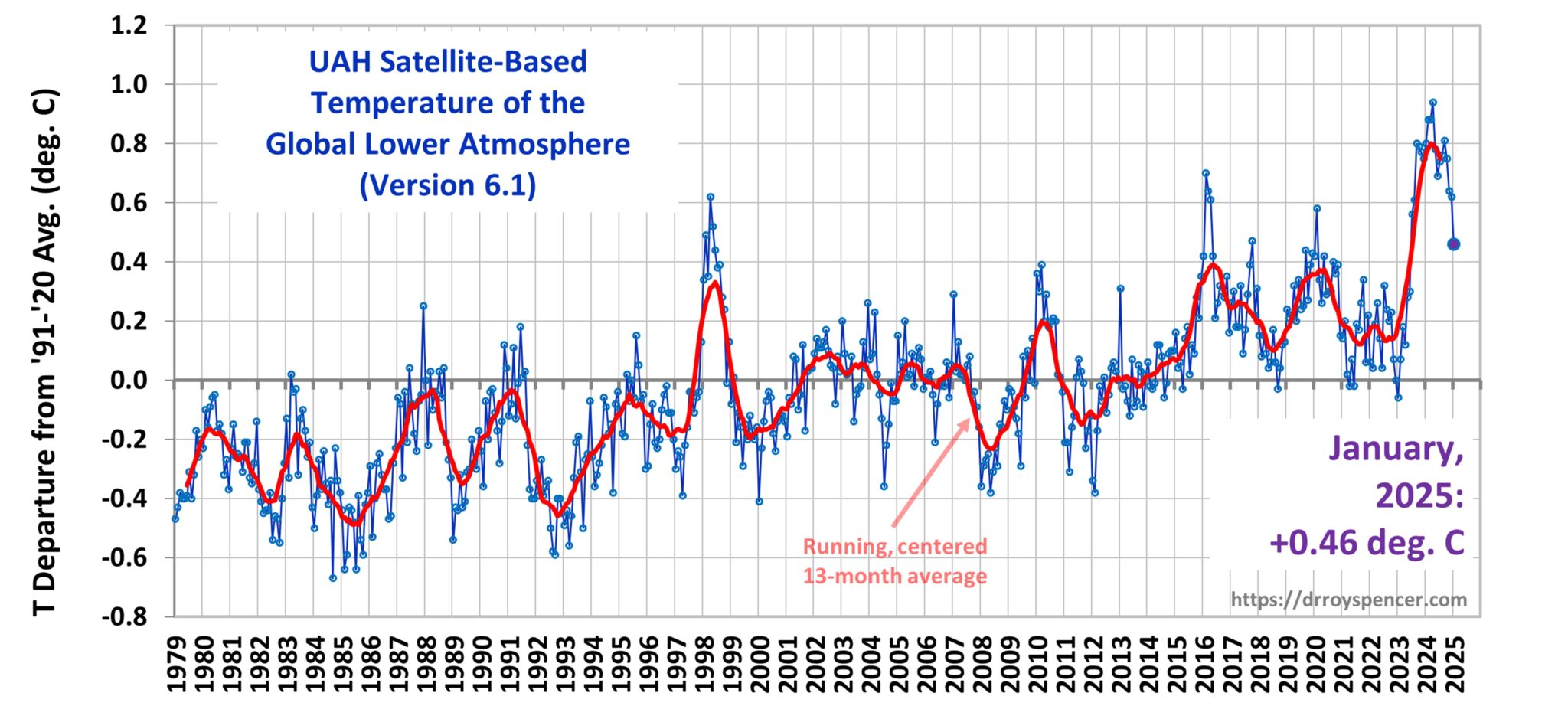We have mentioned the underwater eruption of the Hunga Tonga-Hunga Ha’apai volcano in 2022, which injected an enormous amount of water vapour into the atmosphere, the most important greenhouse gas by far, and might have been behind the temperature spike the following year. And we have also mentioned that as recently as last year scientists were admitting they couldn’t explain the 2023 warming spike but were pretty sure it wasn’t due to CO2. The various competing theories implied different implications about what the temperature pattern would look like over the near future: if it was a permanent change the trend would level off and then resume going up, but if it was a temporary deviation we would see rapid cooling and a return to pre-2022 conditions. It’s still too early to say for sure but it’s beginning to look like the latter. The New York Times may holler “Global Temperatures Shattered Records in January” but satellite data show a sharp drop instead.
Courtesy of Dr. Roy Spencer of the University of Alabama-Huntsville the monthly global temperature anomaly for January 2025 was 0.46C, down almost 0.5C compared to the April 2024 reading of 0.94C:

The cooling was more impressive in the Southern Hemisphere which has fallen by 0.6C since its peak in February of last year. And the tropics cooled even more: a full 1.02C since March 2024. And the models never saw it coming, and can’t explain it now that it has come.
And another thing. We’re repeatedly told that a warming of 1.5C would be worse than the worst catastrophe ever except 2C and we need to consign ourselves to the poorhouse to prevent it. So surely it’s remarkable to think that the world’s troposphere cooled by a third of that amount over the past year and no one noticed or, if they did notice, thought it worth mentioning at all, let alone celebrating.
Here at CDN we don’t have the benefit of a billion dollar climate model to help us be arrogantly wrong at taxpayer expense. But we will conjecture nonetheless that we are seeing the dissipation of what was some temporary warming attributable to natural causes and by fall 2025 the average temperature will have dropped back roughly to where it was before the Hunga Tonga eruption.



Nikolov and Zeller have found the recent warming correlates with reduced cloud albedo as measured by NASA’s Ceres satellite. Go to www. climate-veritas.com for more info.
Total BS
Tonga had NO observed effect on GAT in the month it happened, when any effect would be strongest. As the very small effect of water vapor dissipated, it certainly had no effect on 2023. Tonga had no observed effect on GAT because it ONLY increased atmospheric water vapor by 0.1%